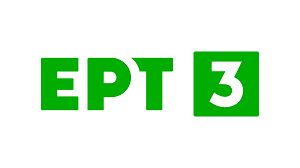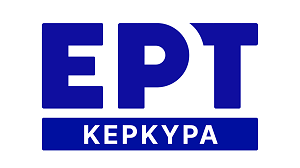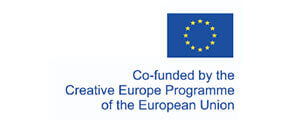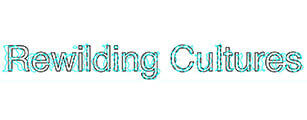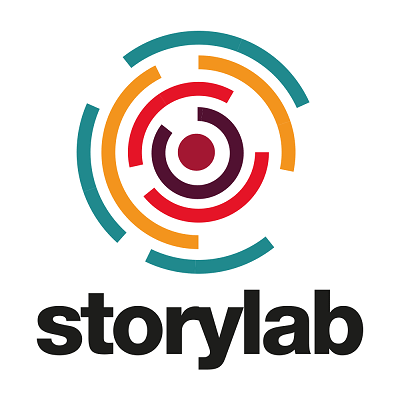Summary
The use of Artificial Intelligence (AI) in music education has become a topic of growing interest in recent years. This article investigates the potential advantages and drawbacks of adopting AI technologies in music education, with an emphasis on its ability to promote access and equity. We examine a wide range of AI applications in music education, such as music composition software, virtual mentors, and online evaluation systems. While AI has clear advantages, questions have been expressed regarding privacy and the impact on teachers and students' careers.
Keywords: Artificial Intelligence, Computer Music, Music Education, Musical Instruments, Technology for Education, Open-Source Technologies, A/r/tography, Arts-based Educational Research
Objective
Music education has long been acknowledged as an important element of human development as well as cultural enrichment. Notwithstanding, access to high-quality music education remains limited for many students, particularly those in low-income communities. By providing a variety of new tools and possibilities, the use of Artificial Intelligence (AI) in music education provides a chance to increase equality and accessibility.
The democratization of music education is a critical issue that affects the music industry and society at large. Traditional music education has often been limited to those who have access to formal music education, leaving many aspiring musicians without the means to learn and develop their skills. However, many people believe that AI technology has the potential to democratize music education by making it more accessible to a wider range of people.
Yonghong et. al. (2015) state that “The application of AI to music education certainly has its drawbacks and limitations”. Privacy concerns arise from the collection and use of personal data by AI systems, which could be used to create targeted marketing or advertising campaigns. Additionally, the impact on employment for music educators is a concern, as AI systems could potentially replace human music educators in certain capacities.
It is a commonly held opinion in music education and education policy that "music belongs to everyone" (Laes, 2016). Laes (2016) also indicates that “Democracy is easily equated with homogeneity: providing the same things to everyone in the same way, in the interests of equal distribution of the common good”. Artificial intelligence, on the other hand, appears to be an additional tool that artists may use to deal with the industry's continually expanding demand. With greater complexity, AI-generated pieces have shown their ability to successfully replicate the techniques and sounds of artists. Artists, on the other hand, are going one step beyond by using the technology to improve their music (Schroer, 2022).
Ting (2017) found that “in the current prevailing neoliberal economic-ideological environment, education as an investment becomes a form of consumerism, and celebrity has become the principal expression of value in a society in which only commodified objects have any value”.
Liasidou (2012) states that “very often education policy and practice concentrate on the products of learning rather than process of learning”. Is AI technology another product that students are ready to “consume”? How will it affect the learning process and the future of these musicians?
Methodology
AI is only one of many tools available in the A/r/tographic process, and the technique itself remains largely centered on the integration of Art, Research, and Teaching in the service of creating novel understanding and knowledge. For this particular methodology we concentrate in [R]esearch and the aim is to investigate a nascent curriculum in music classes in schools using A/r/tography. This research methodology aims to identify, preserve, and aesthetically depict moments of knowledge revival (Chatzigiannakis, 2022). A/r/tography is a powerful tool for negotiating experimental environments with dedication, clarity, and collaborative dialogue. It offers a strong view of the role of art and science (Siegesmund 2012).
According to Irwin (2013) “A/r/tography transforms the traditional relationship between theory and practice by recognizing the movement found within a rhizome” that creates new understandings. O’Sullivan (2006) found that rhizome indicates experimentation. The integration of AI into A/r/tography can assist to broaden the range and depth of educational research by providing novel tools and methodologies. A/r/tography arises where art and science differ and “and artistically re-present moments critical to reclaiming wisdom” (Jeste et. al. 2020). It will be important, for us researchers, to continue the dialogue and the debate about the dilemmas Artificial Intelligence and Artificial Wisdom will bring in the future.
Conclusion
In conclusion, AI technology has the potential of altering the way students learn and educators teach music. Balaban (2002) describes the huge gap between the current music education curriculum and the up-and-coming technologies: “In spite of rich activity in musicology and in computer music, there is little research (if at all) on the development of a computational basis for computer music”. Music education may immensely benefit from improvements in AI technology by providing personalized learning experiences, developing new musical instruments and technologies, and building AI music apps. However, Rickard (2022) states that the pandemic “turned a generation of kids into full-fledged consumers of ed tech content”. Further research and development in this area are needed to fully realize the potential of AI in music education.
References
Balaban, M. (2002). Structure and Interpretation of Music Concepts: Music from a Computational Perspective. In: Anagnostopoulou, C., Ferrand, M., Smaill, A. (eds) Music and Artificial Intelligence. ICMAI 2002. Lecture Notes in Computer Science(), vol 2445. Springer, Berlin, Heidelberg. https://doi.org/10.1007/3-540-45722-4_1
Chatzigiannakis, D., & Fevgalas, S. (2022). From “Panharmonium” to “Arduinonium”. The Unheard Music Intervals Reproduced with an Arduino Uno.
Irwin L. R. (2013). Becoming A/r/tography, Studies in Art Education, 54:3, 198-215, DOI: 10.1080/00393541.2013.11518894
Jeste, D., Graham, S., Nguyen, T., Depp, C., Lee, E., & Kim, H. (2020). Beyond artificial intelligence: Exploring artificial wisdom. International Psychogeriatrics, 32(8), 993-1001. doi:10.1017/S1041610220000927
Rickard, K. (2022, February 1). Transforming Students from Consumers of Education Technology into Creators. https://www.the74million.org/article/educators-view-3-tips-for-transforming-students-from-consumers-of-education-technology-into-creators/
Siegesmund, R. (2012). Dewey Through A/r/tography. Visual Arts Research, 38(2), 99–109. https://doi.org/10.5406/visuartsrese.38.2.0099
Laes, T. (2016, April 5). Democracy in the music education of the future. Finnish Music Quarterly. Retrieved January 7, 2023, from https://fmq.fi/articles/democracy-in-the-music-education-of-the-future
Liasidou, A. (2012). Inclusive education, politics and policymaking. London: Continuum.
O’Sullivan, S. (2006). Art encounters: Deleuze and Guattari. Thoughts beyond representation. London, England: Palgrave.
Schroer, A. (2022, October 06). AI-Generated Music: 11 AI Music Generators to Know. Built In. https://builtin.com/artificial-intelligence/ai-music-examples
Ting, W. H. H. (2017). Popular music education in Hong Kong - A case study of the Baron School of Music. The Routledge Research Companion to Popular Music Education.
Yonghong, G., Hengyu, G.: On the relationship between education and technology in the study of educational technology: take the application of AI in education as an example. Glob. Market Inf. Guide (1) (2015)
Dimitri Chatzigiannakis is a Music Educator and Phd Candidate who can raise the quality of teaching, but also develop a culture of learning and high aspiration across school’s musical department. He has excellent musical knowledge, a strong desire to provide his pupils with a world class education. He is guaranteed to stretch all of his pupils to their fullest potential. He is also a skilled Composer and Audio Producer, expert in music and sound editing hardware and software, with experience handling a wide variety of programs to compose, synthesise, and record his own music. Capable of both transcription, orchestration and possessing a strong background in music theory. Familiarity with a range of musical genres, with special experience in Film, TV, and commercial music composition. Deeply committed to exploring alternative sites for new music, music education, technologies and collaborative arts.
Agnes Papadopoulou, Assistant Professor in the Department of Audio & Visual Arts at the Ionian University of Greece. Her scientific interests include Art Didactics, Art and Technology in Education, Philosophy and the Aesthetics of Media, Philosophical Issues in Ecology, Technoethics. She is the Head of the Pedagogical Sufficiency Program in the Department of Audio & Visual Arts at the Ionian University of Greece. Her publications are related to the teaching of art and creative technologies, in composing narration and the structures of meaning found in games, in using narrative as research, creating narratives with new media, and the role of the arts and technology as means of effective learning.
Back



